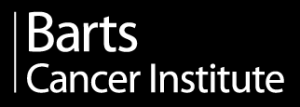February 7
2013
Biodesign Auditorium
727 E. Tyler St. Tempe
AZ 85287
The most cost effective medical intervention in human history has been vaccination. Yet vaccines were largely developed by empirical testing and most consist of killed pathogen or crude parts. We were able to have huge impact without knowing much – only that the body has a system to be preconditioned for a later exposure to a disease. In fact, even today we do not know how most vaccines really work. To treat cancer we have taken a different tack. This is best epitomized by the construction of proton emission treatment centers where a synchrotron manned by 10 physicists will emit protons into your tumor timed to your breathing at a cost of $180M per unit. Maybe a simpler strategy, in the vein of the history of infections, could work. We have been working on developing a universal, prophylactic cancer vaccine. A vaccine that one would take to prevent cancers from occurring. I will review the strategy and progress to date toward this goal. In particular I will address the problem of how an efficacy trial might be conducted.



